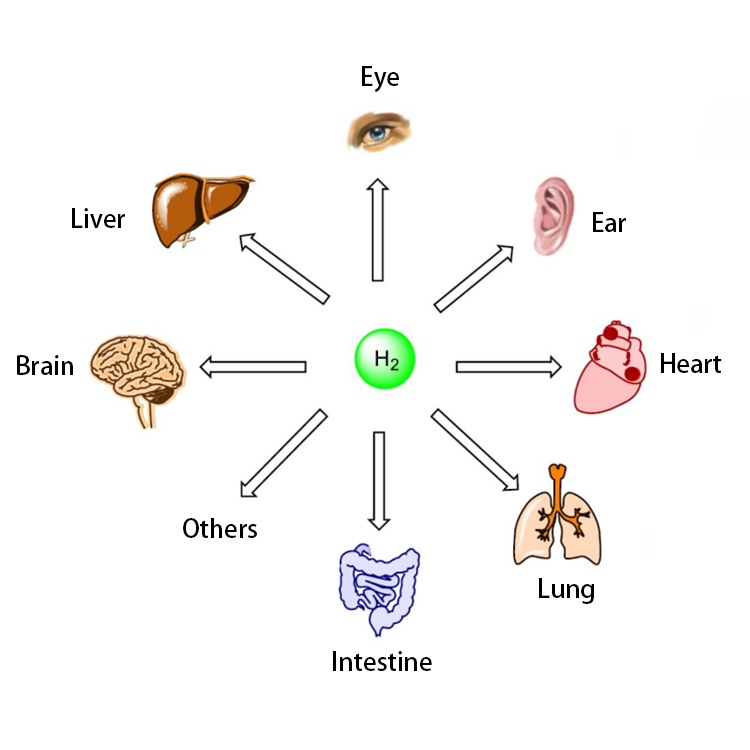Have any questions?
Have any questions?
Abstract:Hydrogen(H2), the smallest molecule and lightest gas in nature, plays a very important role in our lives. It has significant preventive and therapeutic effects on various diseases of the human body.This article describes the history of hydrogen discovery and its role in medical health and synthetic chemistry.
Hydrogen, whose chemical formula is H2, is a diatomic gas molecule composed of two hydrogen atoms sharing a pair of electrons. Hydrogen is the smallest molecule in nature, the lightest gas, and its density is only one-fourteenth that of air. Hydrogen occupies a very important position in our lives, because hydrogen can selectively scavenge hydroxyl radicals (∙OH) and peroxynitrite anions (ONOO−) without affecting other active oxygen substances with physiological functions. , Hydrogen can be used in the medical field.Hydrogen has been proven to have significant preventive and therapeutic effects on many diseases.
Initially, people thought that hydrogen was a physiologically inert gas. It was used in the diving field to replace nitrogen in compressed air and eliminate the problem of nitrogen anesthesia caused by high-pressure nitrogen. In 1975, Dole et al. found in a study that the use of a gas mixture containing 97.5% hydrogen and 2.5% oxygen at 8 atmospheres has a therapeutic effect on squamous cell carcinoma in mice.This is the earliest report on the biological effects of hydrogen. However, due to factors such as harsh conditions and difficult operation, it has not attracted the attention of biologists. Until 2007, Ohsawa et al. confirmed in a study that the use of 2% hydrogen has a therapeutic effect on cerebral ischemia-reperfusion injury in rats. At the same time, it was proposed that hydrogen has the characteristics of selective reduction and only frees the hydroxyl groups in the body. Group (∙OH) and peroxynitrite anion (ONOO−) have an effect. As soon as the results were published, they received widespread attention from biologists, and set off an upsurge in the study of the biological effects of hydrogen.
Liu Dongjie of Taishan Medical College introduced the research progress ofHydrogen Moleculesin alleviating ophthalmological diseases in recent years, and pointed out that hydrogen can reduce eye damage caused by oxidative stress and inflammation. The hydrogen-containing physiological saline can protect the retina and cornea from damage, and has a therapeutic effect on cataracts.He also elaborated on the mechanism of hydrogen in alleviating ophthalmic diseases, which provides a basis for the application and research of hydrogen in clinical ophthalmic diseases.
Liu Jiankang from the School of Life Science and Technology of Xi’an Jiaotong University reviewed the therapeutic effects of hydrogen molecules in heart injury and pointed out that hydrogen can effectively remove the OH produced by heart injury and enhance the body’s antioxidant capacity. It can inhibit pro-inflammatory factors produced by damaged tissues and activate tumor necrosis factor TNF-α and interferon IFN produced by lymphocytes, thereby reducing the damage to myocardium caused by ionizing radiation, alleviating cardiac ischemia-reperfusion injury, and it is useful for heart transplantation, heart and lung Cardiac injury caused by circulation surgery has good preventive and therapeutic effects. Hydrogen has a protective effect on colon damage, and has significant preventive and therapeutic effects on cardiovascular disease, digestive system, respiratory system and many other diseases. At present, hydrogen medicine has moved from basic research to clinical application.
